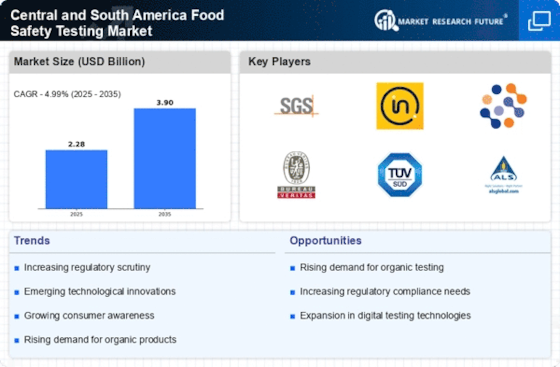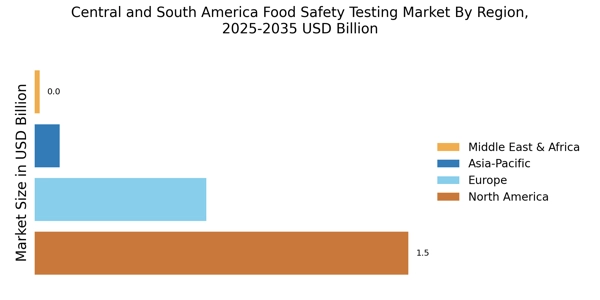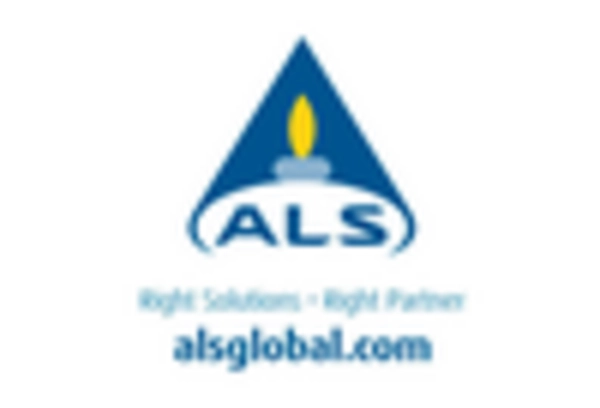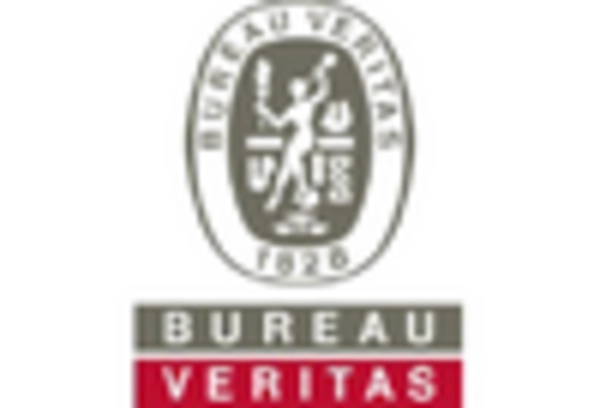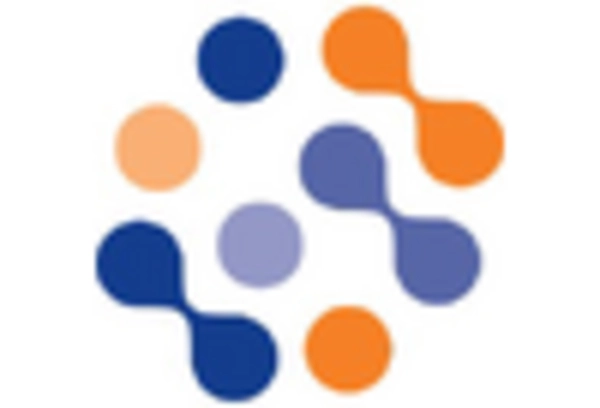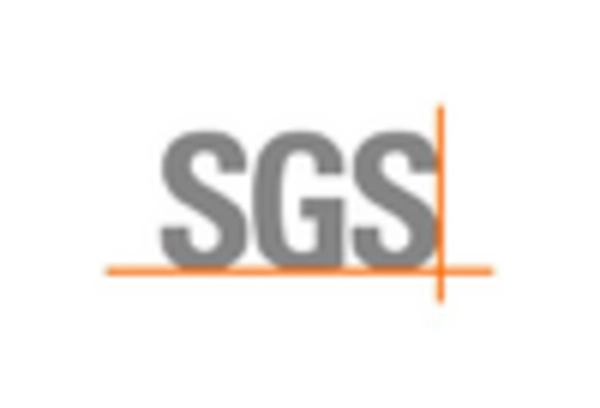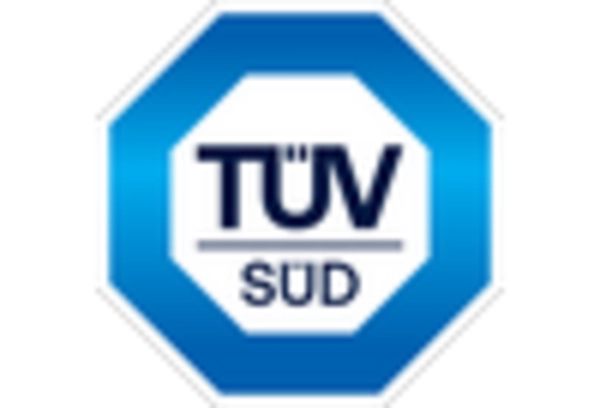Consumer Demand for Transparency
There is a growing consumer demand for transparency in food sourcing and safety, which is significantly impacting the Central and South America Food Safety Testing Market. Consumers are increasingly concerned about the origins of their food and the safety measures employed in its production. This trend has prompted food companies to invest in comprehensive testing and certification processes to assure customers of product safety. As a result, the market for food safety testing is likely to witness a surge, with estimates suggesting a potential increase in market size by 20% by 2026. This shift underscores the importance of transparency in fostering consumer trust and driving market growth.
Expansion of Food Export Markets
The expansion of food export markets in Central and South America is a pivotal factor influencing the Food Safety Testing Market. As countries in the region seek to increase their presence in international markets, compliance with international food safety standards becomes paramount. This necessitates rigorous testing to meet the requirements of importing countries, thereby driving demand for food safety testing services. The market is projected to grow as exporters invest in testing to ensure their products meet safety regulations. By 2025, the food safety testing market is anticipated to reach USD 1.8 billion, reflecting the growing importance of export compliance in the industry.
Regulatory Compliance and Standards
The Central and South America Food Safety Testing Market is significantly influenced by stringent regulatory frameworks established by governmental bodies. These regulations are designed to ensure food safety and quality, compelling food manufacturers and distributors to adopt rigorous testing protocols. For instance, the implementation of the Codex Alimentarius standards has led to increased demand for food safety testing services. As countries in the region enhance their regulatory compliance measures, the market for food safety testing is projected to grow. In 2025, the market is expected to reach a valuation of approximately USD 1.5 billion, reflecting the critical role of compliance in driving industry growth.
Technological Advancements in Testing
Technological innovations are reshaping the Central and South America Food Safety Testing Market, introducing more efficient and accurate testing methods. The advent of rapid testing technologies, such as PCR and ELISA, has enabled quicker detection of pathogens and contaminants in food products. This shift towards advanced testing solutions is likely to enhance the reliability of food safety assessments. Moreover, the integration of automation and artificial intelligence in testing processes is expected to streamline operations, reduce human error, and lower costs. As a result, the market is anticipated to expand, with a projected growth rate of 8% annually over the next five years.
Rising Incidence of Foodborne Illnesses
The rising incidence of foodborne illnesses in Central and South America is a critical driver for the Food Safety Testing Market. Reports indicate that foodborne diseases affect millions of individuals annually, leading to significant health concerns and economic losses. This alarming trend has prompted governments and health organizations to prioritize food safety initiatives, thereby increasing the demand for testing services. The market is expected to respond to this urgency, with a projected growth rate of 7% over the next few years as stakeholders seek to mitigate risks associated with foodborne pathogens. Enhanced testing capabilities are essential to address these public health challenges.


